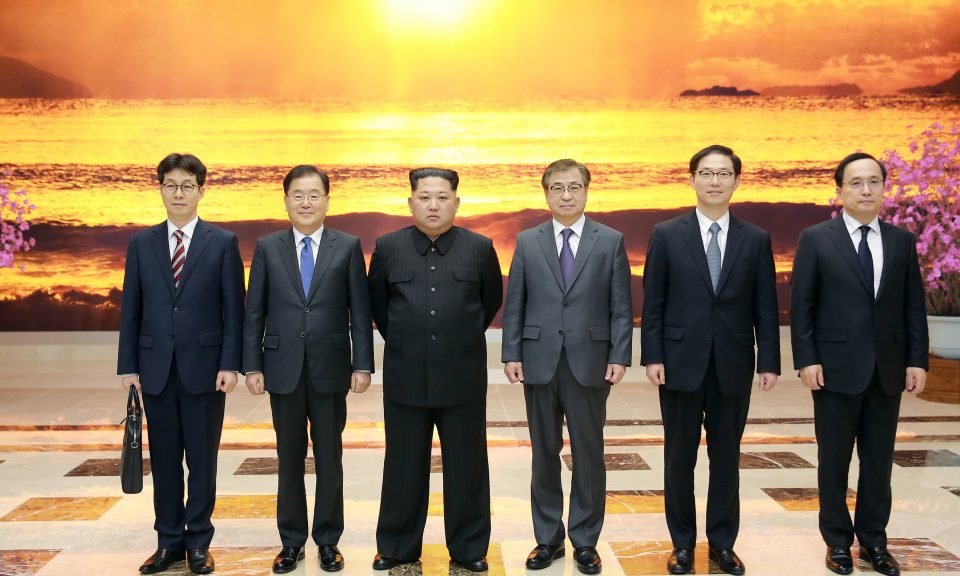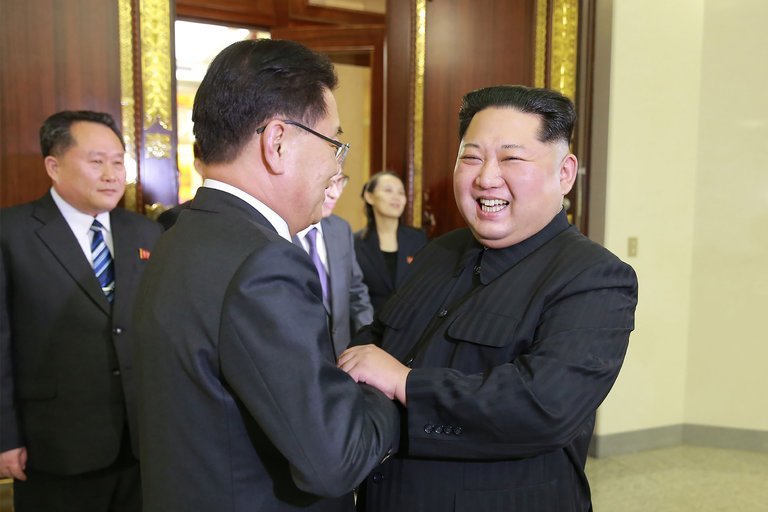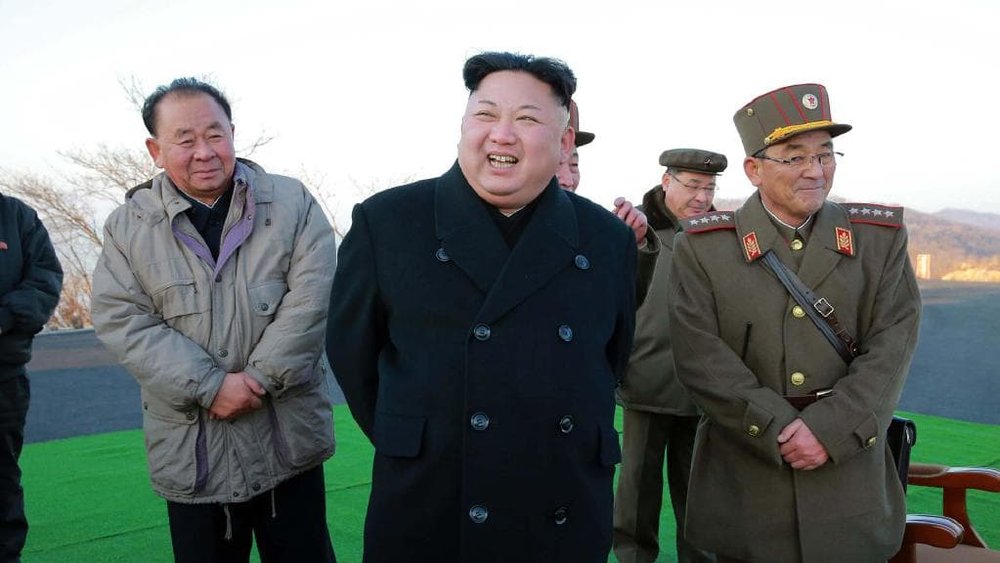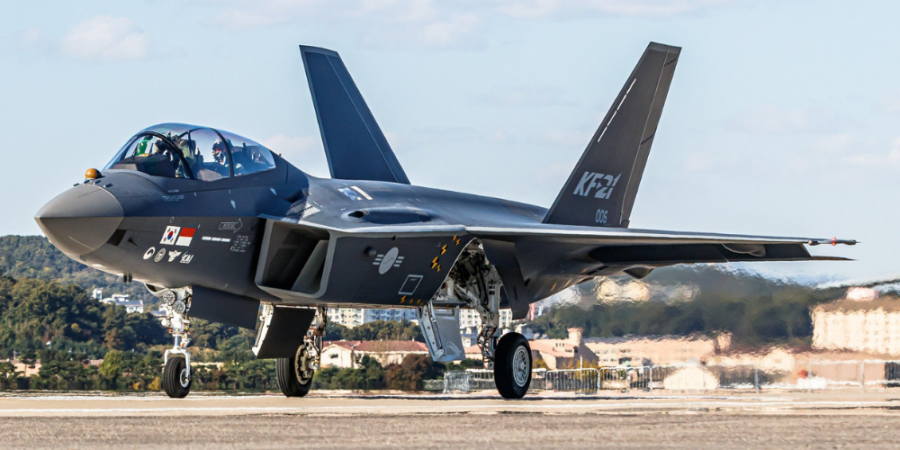Donald Trump recently made history after agreeing to become the first president of the United States to negotiate with the North Korean leader face-to-face. But is the move really a victory for Trump or just a clever way for North Korea to avoid the increasing pressure from the international community to give up its nuclear missile program?
Kim Ready for Negotiations?

Mar. 2018: Kim Jong Un posing for photos with the South Korean delegation after the meeting
Relations between the two Koreas saw a drastic improvement last week after Kim joined the South Korean leaders over a lighthearted dinner where the North Korean leader gave a glimmer of hope for peaceful negotiations with the U.S. South Korean sources present at the important dinner reported that Kim Jong Un had jokingly said that he would be willing to enter talks with Donald Trump, and even give up his nuclear missile program in order to escape the growing sanctions.
This change-of-heart came after Trump’s recent announcement to push the most severe sanctions against North Korea to date and cut off all illegal supplies which may be fueling the country’s nuclear program. Kim’s concession to seek negotiations with U.S. leader was seen as a huge victory for Trump, and many have even praised him for the courageous move which led to the recent turn-of events.
The Talks May Come at a Price

North Korea’s leader, Kim Jong-un, meeting with South Korea’s chief of delegation, Chung Eui-yong, last week.
A South Korean representative spoke on President Moon Jae-in’s behalf during which he commended Trump’s leadership to accept Kim’s invitation for peaceful talks and said that the move will garner praise not only from the two sides of Korea but also from the rest of the international community which has become increasingly concerned about the rough nation disrupting world peace. However, it wouldn’t be surprising if North Korea suddenly pulls out of the talk, just like it has done many times over the past.
If Kim does discontinue his military program as a result of the possible talks, he stands a chance of losing power and reverting the central principal of the North Korean politics. Possession of nuclear weapons was written into the constitution of the country in 2012 by Kim himself, which makes it highly unlikely for him to give up on it. Moreover, in a letter to Trump, Kim made it clear that America’s nuclear threats to his country had only convinced him further that the ballistic missile path that he had chosen for the future of North Korea was indeed a correct decision.
Skepticism Regarding North Korea’s True Intentions

March 2018: North Korea’s leader Kim Jong-un supervising the latest missile launch
On the other hand, the White House believes that there is no point in talking to the North Korean authorities if Kim is not willing to discuss the possibility of getting rid of the dangerous missiles. During the meeting with South Korean officials, Kim allegedly said that he is open to the idea of giving up his nukes if the United States promises to guarantee the security of North Korea’s ruling government. The concerning question is, what exactly would it take for the U.S. to make Kim happy enough to part from his beloved nuclear weapon program, which the country sees as a necessity for its existence in this world?
Experts who have showed their skepticism towards the talks say that the North Korea’s sudden change in tune may be an internal strategy to buy the country enough time to solidify its missile program while seeking relief from current sanctions, as well as diverting attention from US-South Korea relationship in order to make the inter-Korea relationship a priority.
Possible Last-Minute Pull-Out
The U.S. has taken a strict stance on North Korean missile program under the presidency of Trump, and the new sanctions have hit the country harder than ever before, targeting businesses, companies, banks and almost any line of commerce that could be fueling its military capabilities. But the sanctions aren’t just affecting Kim’s ballistic missile program, but also the economy of the nation in general.
Shea Cotton, an expert who is well-aware of North Korea’s history, says that Trump isn’t the first US President to place big sanctions against the rogue nation, and this isn’t the first time the North Korean leaders have agreed to negotiate with the White House in order to find relief against the sanctions for some time before backing out of the talks and returning to its old ways.










